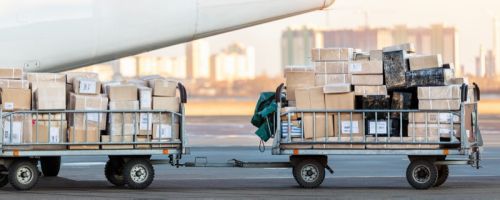WASHINGTON (BRAIN) — Lithium-ion battery fires and e-bike standards generated plenty of debate within the industry in 2022, but little argument exists within the industry over how some unregulated packs and bikes enter the U.S. and become potentially hazardous products.
The $800 import threshold — known as the de minimis value — allows direct-to-consumer retailers, particularly from China, to sell lithium-ion batteries and e-bikes without certificates of conformity. They can be sold well below market cost because no duties, federal, state, or local taxes are paid. Those products also can enter the U.S. market bypassing Consumer Product Safety Commission regulations because off-shore retailers are out of reach of the U.S. government and legal system.
Manufacturers are supposed to provide a certificate of conformity, as outlined by the CPSC. Many in the U.S. industry said the off-shore direct-to-consumer brands offered on sites like Amazon and eBay perform minimal testing to standards such as the UL 2849 for e-bikes. The high $800 threshold also has led to counterfeit products making their way to the U.S.
“The issue is a foreign exporter can send something into the United States, and as long as it has a value of under $800, it doesn’t go through the normal customs process,” said Patrick Cunnane, Messingschlager USA CEO. “It skirts the normal costs a regular business in the U.S. has to pay. You put on top of that a product can be sold by unscrupulous retailers that don’t go through testing. Where it gets confusing is if you sell something from China to somebody in the United States and it doesn’t pass CPSC, CPSC theoretically can go after them, but it can’t. It’s not that they’re skirting CPSC. It’s that there’s no recourse. And that’s the issue with these batteries and everything else or with personal injury.”
Cunnane spoke in Washington during a tariff hearing in 2018 to propose lowering the de minimis value to $50. Speaking with BRAIN in January five years later, he said he would like to see it lowered to $10, which is in line with China’s domestic rule.
“De minimis disadvantages importers, wholesalers, and retailers who sell products that pay import duty and 301 tariffs” Cunnane said.
“China isn’t paying these fees, and large retailers are able to use de minimis to lawfully evade these fees. That means these funds that could be going to the federal government — and which could be used to regulate imports and reduce illegal drugs like fentanyl and other narcotics and counterfeit products from shipping into the United States — aren’t.
“Put simply, de minimis advantages foreign retailers, many in China, and large global retailers over American businesses, especially small and medium businesses.”
What’s in a name?
“The problem with de minimis is the name,” Cunnane told BRAIN. “It’s misleading, and few people really understand its impact, especially people who should know in Congress. I’ve had a number of one-on-one conversations with people that are aware of it but they don’t understand the impact of it. And when I explain it to them they’re like, ‘Wow, I didn’t know.’”
Jeff Ferry knows. He works for the bi-partisan think-tank Coalition for a Prosperous America in Washington. An economist and a cyclist, he advocates for U.S. manufacturers and retailers who have to compete against e-commerce behemoths like Amazon.
“CPSC can’t keep up with (large importers), so it’s really debilitating for our industry,” Ferry said.
Last January, Ferry wrote an analysis on the Coalition for a Prosperous America website about how de minimis obscures $128 billion in U.S. imports.
Ferry added that e-bike manufacturing in Europe is successful because its tariffs restrain Chinese imports, unlike in the U.S. “A government official recently joked in a public discussion about free-trade agreements. He said someone once said we don’t have a free-trade agreement with China. He said, ‘Yes we do. It’s called de minimis.’”
Worth fighting for
Like Cunnane, Bob Margevicius has been outspoken about de minimis. Margevicius, Specialized Bicycles executive vice president, has held webinars and workshops at trade shows for the industry to educate how lowering the minimum value of imports would benefit U.S. retailers.
“I’ve been fighting this from the outset on the basis of safety, quality, etc.,” Margevicius said.
During Margevicius’ NBDA webinar in July 2019, he had a slide showing Amazon with more than 119 million products for sale, 40% coming from Chinese sellers. Also shown were more than 1.3 billion items available on eBay with just under 780 million from China. eBay’s cycling section at that time showed 1.3 million listings from Chinese vendors.
In light of the risks from non-regulated batteries, the trade group PeopleForBikes recently said it will lobby congress to make exceptions to the de minimis rule, but Ferry isn’t confident that will be enough.
“I wish them luck, but I think that’s very unlikely,” he said. “Because it would require legislation, and even if it were to pass, China would immediately start shipping e-bikes from Vietnam or somewhere else. This is what we’ve seen with a lot of other products. The problem is the Chinese exporters are very clever, and they have American law firms working for them. If you write some narrow restraints, they will find a way around them.”
Rep. Earl Blumenauer (D-Ore.) introduced the Import Security and Fairness Act a year ago to strengthen U.S. international trade laws to prevent non-market economies and goods from exploiting the de minimis threshold. Congress has not taken up the legislation yet.
“I favor Congressman Blumenauer’s proposal, which just says China is not a market economy, therefore de minimis doesn’t apply to China,” Ferry said. “They will find ways to evade and avoid that, too, but at least it’s much more blanket and simple. I don’t even know why you would tackle the e-bike battery problem through de minimis. Why not simply require all e-bike batteries to have UL certification? We should develop the right safety standards and enforce them.”


